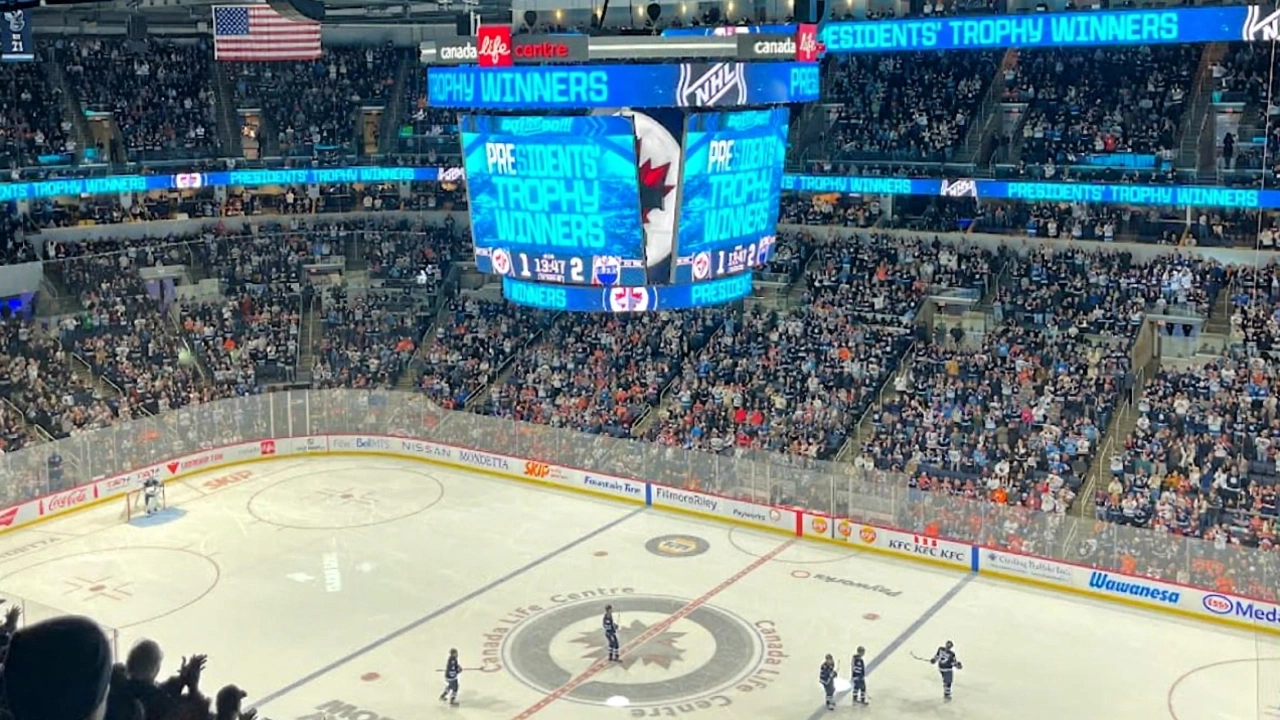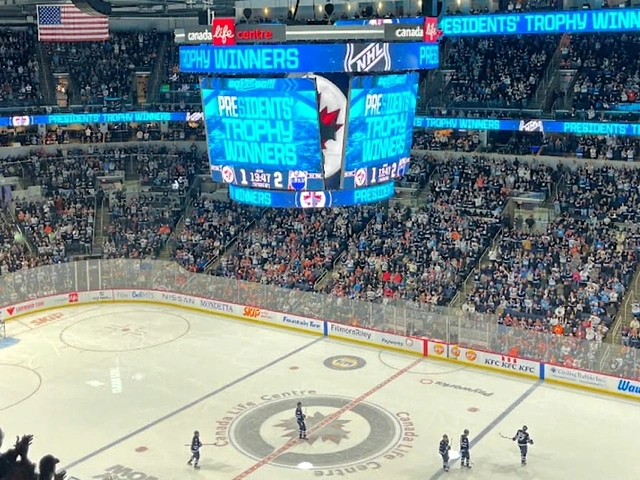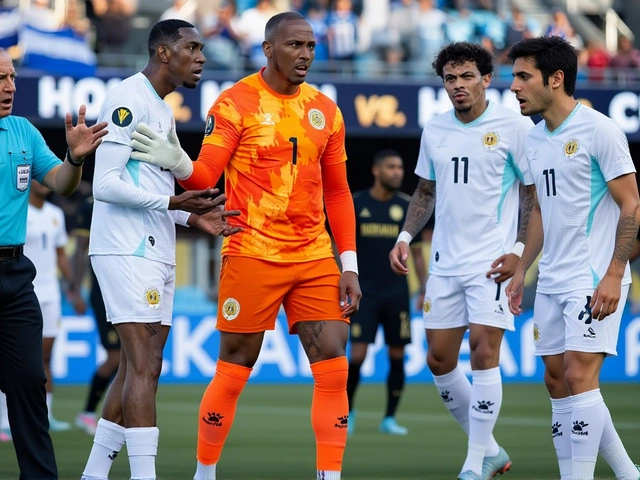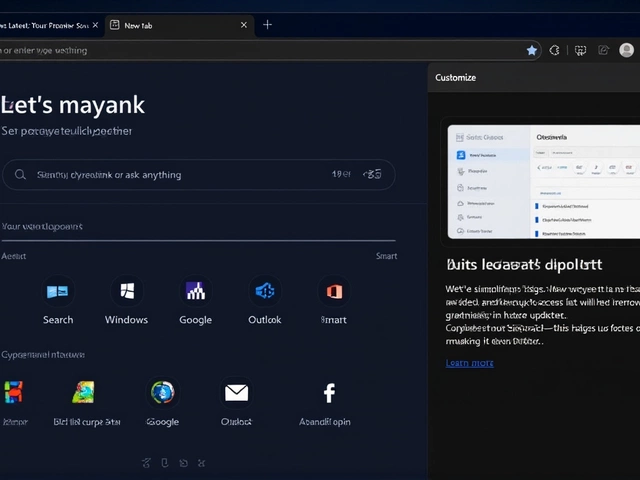When the Winnipeg Jets hoisted the Presidents' Trophy for the first time in franchise history, the buzz in Winnipeg was electric. The club capped the 2024‑25 NHL regular season with a blistering 56‑22‑4 record, amassing 116 points – both a franchise‑high for wins and points. That same season, the Jets also secured home‑ice advantage for the entire Stanley Cup run, a perk that usually spells deep playoff success. Yet, a Game 6 overtime loss to the Dallas Stars thrust the celebration into a sudden, disappointing silence.
Record‑Breaking Regular Season
The Jets didn’t just win the trophy; they rewrote their own record book. Early in October, head coach Rick Bowness announced a revamped offensive system that emphasized quick puck movement and aggressive forechecking. By mid‑season, the team was averaging 3.45 goals per game, the highest in the league. The numbers back it up: 56 victories set a new zenith for Winnipeg, while the 116 points eclipsed the previous best of 108 set in 2018‑19. Even more striking was the 44 regulation wins, a figure that broke the old benchmark of 38.
"We knew we had the talent, but the consistency was the X‑factor," said Bowness after the final regular‑season game on April 11, 2025. "Every line contributed, and the kids bought into the system from day one."
How the Trophy Was Clinched
The clinching moment arrived on April 12, 2025, when the Washington Capitals fell 3‑2 to the Columbus Blue Jackets. With three games left, the Capitals trailed Winnipeg by five points, making it mathematically impossible to overtake the Jets.
That loss gave the Jets an unassailable lead, sealing the league’s top‑seed award three days before the final whistle of the regular season. As a result, the club earned the coveted home‑ice advantage for each playoff round – a luxury that, historically, correlates with deeper runs.
Playoff Heartbreak and the "Presidents' Trophy Curse"
Enter the postseason, and the story took a darker turn. After dispatching the Edmonton Oilers in five games, the Jets met the Dallas Stars in the Western Conference semifinals. The series was a roller‑coaster, with both teams trading blows in tight contests. Game 6, played on May 2, 2025, seemed like a chance to break the so‑called “Presidents' Trophy curse.” The Jets led 2‑1 late in the third period, but Dallas equalized with a slapshot from the point. Overtime decided the fate: Stars forward Joe Pavelski slipped the puck past Connor Hellebuyck, ending Winnipeg’s dream.
"We left everything on the ice," Hellebuyck said, visibly upset in the post‑game interview. "It hurts, but that’s hockey. We’ll take the positives and move forward." The loss marked the 12th straight year the regular‑season champion failed to hoist the Stanley Cup, a streak dating back to the 2012‑13 Chicago Blackhawks.
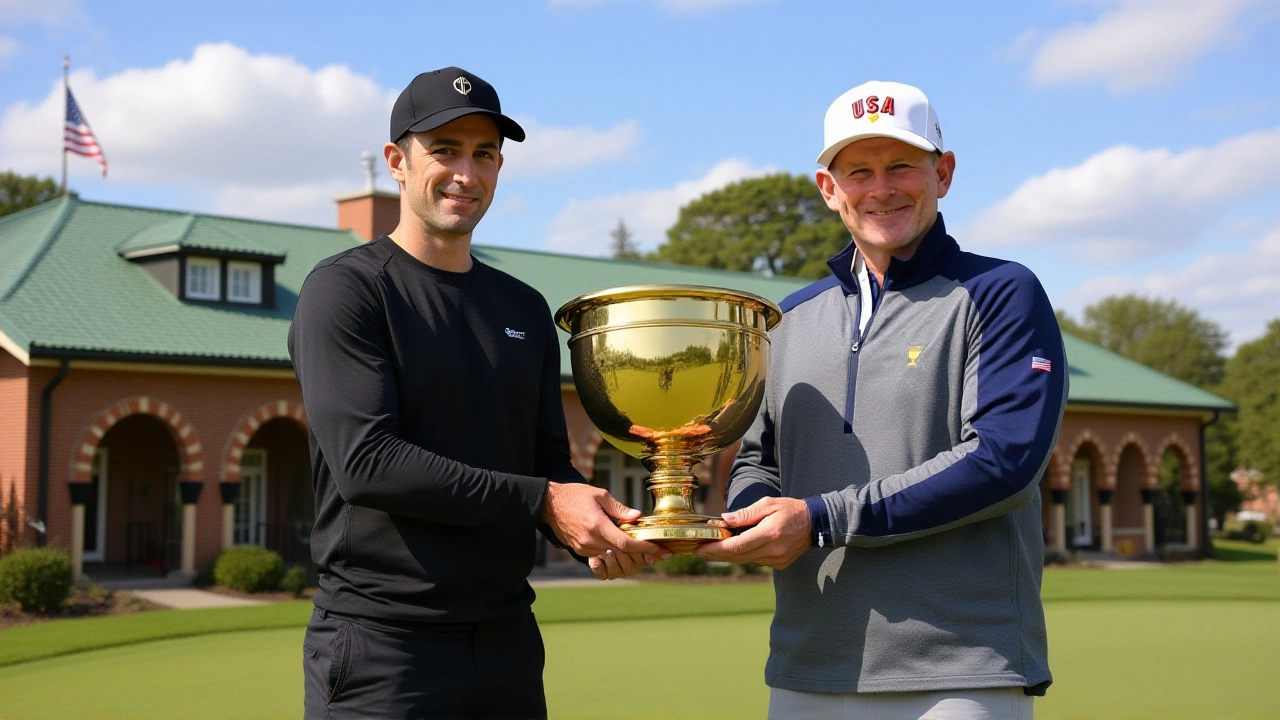
Historical Context and What It Means
Since its inception in the 1985‑86 season, the Presidents' Trophy has been awarded 37 times to 18 different clubs. Only eight teams have paired the trophy with a Stanley Cup victory, and just two have done it since the lockout‑shortened 2004‑05 season – the 2007‑08 Detroit Red Wings and the 2012‑13 Blackhawks.
Nevertheless, first‑seed teams have historically been the most successful playoff seed, winning the Cup more often than any other position. The fourth seed sits a distant second, with six championships. Analyst Bob McKenzie of The Sports Network noted, "While the curse narrative is compelling, the data shows top‑seed teams are still the statistical favorites. Winnipeg’s regular‑season dominance puts them in elite company, even if the final prize eluded them this year."
Looking Ahead for Winnipeg
Despite the playoff exit, the Jets’ front office is already laying groundwork for 2025‑26. General manager Kevin Cheveldayoff confirmed the team will retain its core, including Hellebuyck, forward Kyle Connor, and defenseman Nolan Patrick. The club also signed a $2.3 million extension with its lead goaltending coach, hoping to iron out the postseason nerves that haunted the past few games.
Fans, meanwhile, are already planning season‑ticket renewals. "We’re not going to let this one loss define us," says longtime supporter Jenna Lee. "The trophy was proof we belong among the league’s elite, and next year we’ll be back for the Cup."
- Franchise‑record: 56 wins, 116 points
- First Canadian team to win the Presidents' Trophy since 2012
- Home‑ice advantage guaranteed through the playoffs
- Eliminated in Game 6 OT by Dallas Stars
- 12‑year streak of Trophy winners missing the Stanley Cup
Frequently Asked Questions
How does the Presidents' Trophy affect a team's playoff chances?
The trophy guarantees home‑ice advantage for each playoff round, which historically improves a team's odds because they play the decisive games on familiar ice and enjoy crowd support. However, it does not guarantee a championship, as evidenced by the recent 12‑year streak of winners falling short.
Why is the 'Presidents' Trophy curse' such a big talking point?
Because the award represents regular‑season supremacy, the repeated failure of its winners to claim the Stanley Cup feels like a paradox. The narrative resonates with fans and media, especially after high‑profile teams like the Jets see their season end in overtime.
What were the key factors behind the Jets' historic regular season?
A combination of a new aggressive forechecking system, depth scoring from players like Kyle Connor and Aleksander Barkov, and stellar goaltending from Connor Hellebuyck propelled the Jets. Their ability to win 44 games in regulation also gave them a critical tiebreaker edge.
When can fans expect the Jets to challenge for the Stanley Cup again?
Management plans to keep the core roster intact for the 2025‑26 season, meaning the team will be poised to contend as soon as the next campaign begins. The experience of this playoff loss could serve as motivation for a deeper run.
How does this achievement compare to other Canadian franchises?
The Jets are the first Canadian club to capture the Presidents' Trophy since the 2011‑12 Vancouver Canucks fell short. It underscores a shift in the league, where traditionally dominant teams from the U.S. have long held the regular‑season crown.
